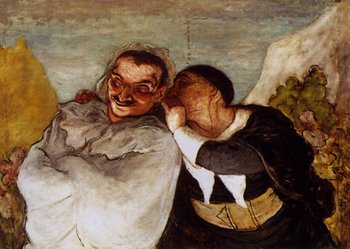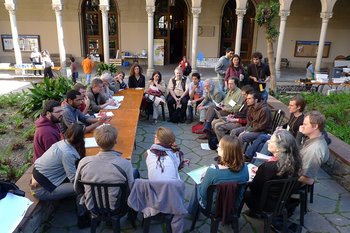
Knowledge
Knowledge management tools and knowledge sharing processes. For example, "lunch and learn" sessions whereby teams volunteer to present topics to your organization at lunch.Media
Presenting information and knowledge in formats such as video that are easy to consume. Large organizations may produce a great deal of media for both internal and external communications. For example, videos that explain products in an entertaining format.Events
Events to communicate information in areas such as strategy, compliance, risk management and change management. For example, a kickoff meeting for a project that involves leaders explaining the urgent competitive need for the project to succeed.Storytelling
Leaders and media teams who are able to use storytelling to make information more interesting and memorable.Skip Level Meetings
Processes that allow information to flow upwards from the working level to management such as skip level meetings.Culture
Developing an organizational culture of information sharing. For example, setting the expectation that knowledge be shared freely between teams without unwarranted secrecy.Graphics
Visual communication such as posters designed to publicize events, knowledge, policies and other information.Internal Marketing
The use of marketing techniques to sell strategies and engage employees. For example, using project branding to win stakeholder support for a project.Training
Internally developed training that is unique to an organization such as safety training that is specific to your environment.Messages
Using messages such as email and mobile text messages to communicate organizational information. For example, communication of human resources policy by email.Publications
Internal publications that present an organized view of information that employees need. For example, an intranet that offers an employee benefits guide.Applications
Digital tools that facilitate communication. For example, a system for making job postings available internally.Meetings
Scheduled meetings and other formal communications. For example, a requirement that all managers hold goal setting meetings with direct reports every six months.Audit Trail
In some cases, internal controls such as an audit trail are required to record that certain information has been communicated. For example, employees and managers may be required to sign a copy of a performance review document.| Overview: Internal Communication | ||
Type | ||
Definition | The leadership, administrative and technical process of sharing information with employees to achieve an organization's objectives. | |
Related Concepts | ||































